How Much Do Boilermakers Make? 2025 Salary Statistics
Last Updated on
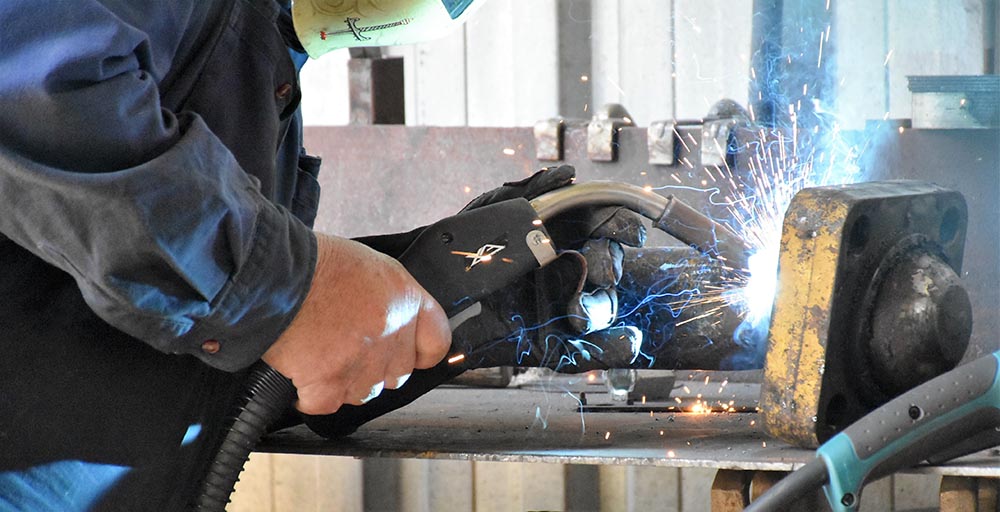
Welding is a necessary trade in almost all industries. It has plenty of applications, from the maintenance of machinery to shipbuilding and construction. The profession can be rewarding and lucrative for those who love hands-on work.
Before you choose this as your career path, you need to have a clear picture of what it entails. Here we will go over what you can expect in terms of salary, working conditions, and job duties of boilermakers.
How Much Do Boilermakers Make?
Like most careers, your income as a boilermaker varies depending on several factors. These factors include experience level, location, industry, and type of job. Ensure you keep that in mind before you decide to become a boilermaker as a lifelong career.
Also, look for clear insights about the industry from the US Bureau of Labor Statistics (BLS). For instance, USBLS says that the demand for boilermakers will remain steady up to 2029, with a decade growth of 1%. Such information can help you know what to expect in terms of career development and salary.
With that in mind, it is usually in the range of $39,620 to $99,920, according to Career Explorer. The average salary is around $63.1K per year. That translates to about $32 per hour on average.
That is above the national minimum wage of $17.25 as of 2021. However, it will change depending on location. For instance, the average salary in Australia stands at $85,800 per year or $44 per hour, according to Talent.
Though the salary might vary based on location and experience level, it always remains attractive given the nature of the work. It is usually more than what most other career options offer. That said, look at the following factors to get a better understanding of the income.
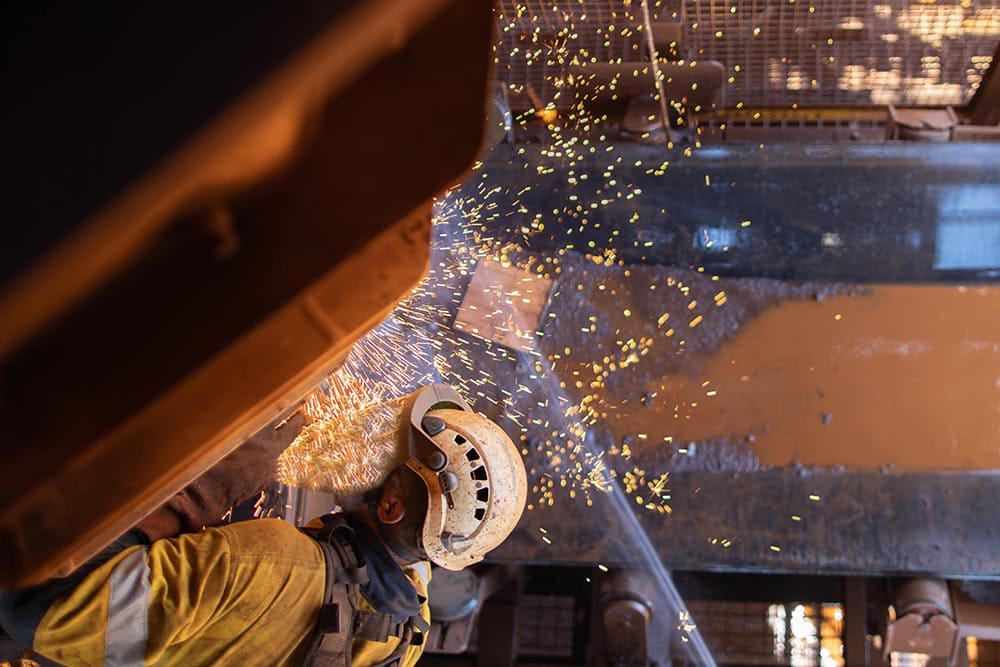
Boilermakers Income by Experience Level
Your training and experience level will affect your salary options. The reason for this is that as you progress in your career, you will have more responsibilities. With more responsibilities comes more pay and vice versa.
Although earning the highest possible income takes time and dedication, it is well worth it in the long run. First, let us look at how much boilermakers make after completing training.
Entry-Level Boilermaker
At this level, you have no experience. Thus, your role will be to assist experienced boilermakers with their work. You may get responsibilities such as cleaning the welding equipment and the welding area or carrying tools.
You can expect to earn $39,620 to $53,240 per year, according to Owlguru. That is an average of around $19.44 to $26.24 per hour. Like any other job, this salary will increase as you gain experience.
Junior-Level Boilermaker
With some experience under your belt, it is time to be a junior-level boilermaker. You will now have more responsibilities, and the pay reflects that. You can work in the field, helping with minor tasks and projects, but still under the supervision of a more experienced boilermaker.
As a junior-level boilermaker, you can expect to earn an average income of $53,240 per year. That is an average of around $26 per hour, according to Owlguru.
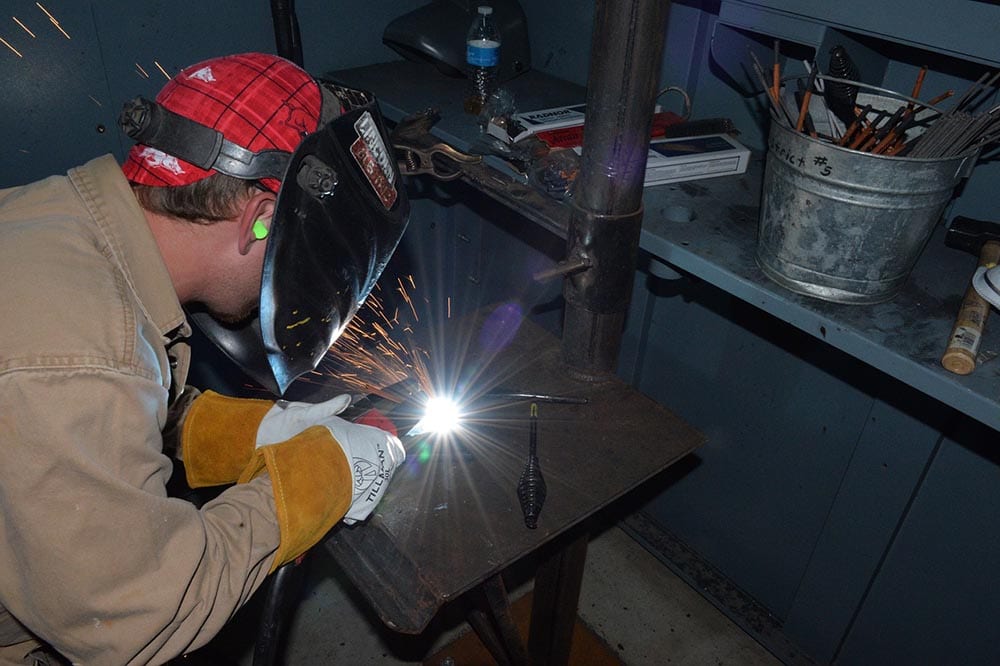
Mid-Level Boilermaker
Now you are starting to get experience and showing it in your work. You can expect to get more responsibilities than the junior-level boilermaker. You can supervise junior-level boilermakers and be part of the management team.
You also have the independence to make decisions with minimal supervision, like materials to use and welding techniques. You can expect to earn an average of $65,360 per year. That is about $31.40 per hour on average.
Senior-Level Boilermaker
You now have years of experience and a track record of productivity and commitment. You can expect to be a part of the management team, instructing junior-level boilermakers and managing projects.
Responsibilities are also more, and you can expect to handle the most complex tasks. At this level, you can expect to earn an average income of $81,150 per year. That is around $38.85 per hour on average.
Highest-Level Boilermaker
Here you are at the top-level in your career. You now have decades of experience, a proven track record, and can handle anything thrown at you. You may be in management or taking care of large projects.
You are not just a boilermaker but also an expert in the field. In most cases, you have a college degree in welding engineering or a related course.
You can expect to earn an average of $99,920 per year. That is around $48 per hour on average.
What Is a Boilermaker?
A boilermaker is a skilled tradesperson who works on things like boilers, tanks, and closed vats. They build, install, maintain, and repair these pieces of equipment for power plants, refineries, and factories. They work on liquid, gas, and oil vessels.
Boilermakers’ duties include:
- Assembling boilers using welding techniques
- Installation of boiler and other equipment
- Diagnosing potential problems
- handling repair and installation tools and equipment
- Reading blueprints
- Replacements and repairing of broken parts like gauges, pipes, and valves
Other responsibilities may include implementing efficiencies, testing boilers, and routine maintenance.
The work is sometimes hazardous and physically demanding. For example, they work with power grinders, acetylene torches, and heavy equipment.
Thus, precautions such as wearing protective gear and extensive safety training to mitigate risk is mandatory.
Boilermakers Salary by Location
Every state in America offers different salary options for boilermakers. For example, you will earn more if you work on the east coast or west coast.
First, the rules of demand and supply mean salaries will vary by location. There are more job opportunities where there is a higher demand for the occupation.
Also, living expenses are different by location. For example, New York or California is more expensive to live than Louisiana or Tennessee. You can see a list below showing the highest-paying states for boilermakers.
| State | Annual | Hourly |
| Connecticut | $92,670 | $45 |
| New York | $91,090 | $44 |
| Minnesota | $85,170 | $41 |
| Pennsylvania | $82,400 | $40 |
| California | $81,630 | $39 |
| Kentucky | $81,400 | $39 |
| Alaska | $81,090 | $39 |
| Delaware | $80,460 | $39 |
| New Jersey | $76,600 | $37 |
| Michigan | $76,370 | $37 |
Boilermakers Income by Industry
Some industries offer the best salary for boilermakers compared to others. Industries such as construction, chemical plants, and shipyards pay a lot more than most. That is because you will have different tasks, with some being more complex than others.
That has not to say that the income is not subject to experience and location. Here are the top-paying industries for boilermakers.
Oil and Gas Industry
The oil and gas industry is very demanding when it comes to tasks. However, you can expect higher pay. You will be welding pressurized pipes and tanks, so you have to be extremely careful. In addition, you will have to work in extreme conditions like heat and cold.
In this industry, you can earn an average salary of $92,840 per year. That is around $44.63 per hour on average.
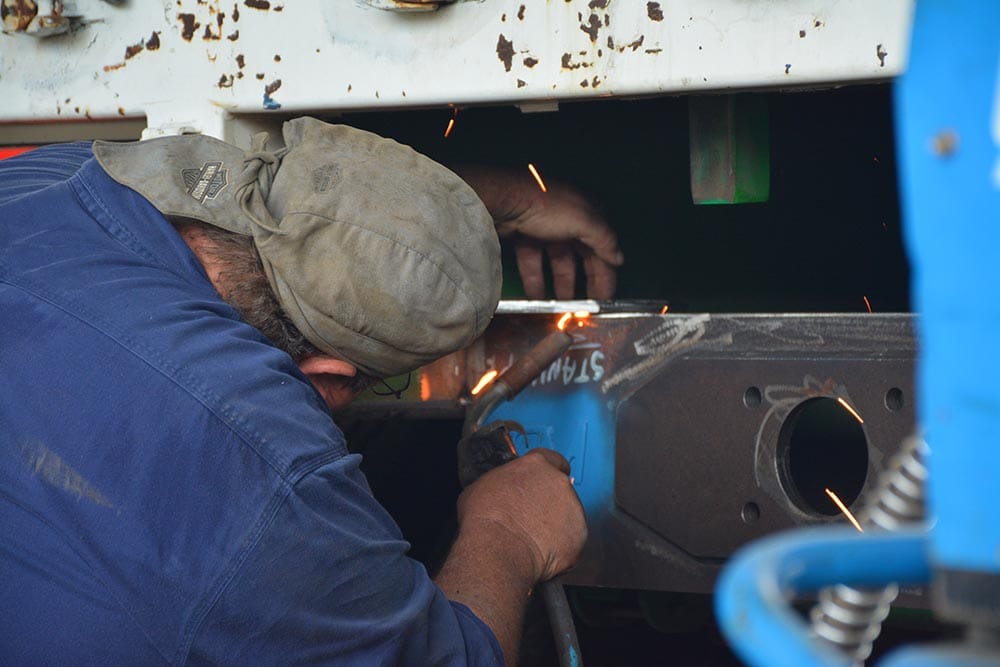
Utility System Manufacturing
You will be welding and fabricating systems to make sure they work as expected. They should be resistant to corrosion and withstand the intense pressure from steam systems. It can be very demanding, but it can also be rewarding.
In this industry, you need to pay attention to details and accurate measurements. This industry offers an average salary of $71,750 per year. That is around $34.49 per hour on average.
Chemical Manufacturing
Chemical manufacturing uses a lot of boilers and pressurized pipes. You will use different materials that must be strong and resistant to corrosion.
You can expect an average salary of $71,060 per year. That is around $34.16 per hour on average.
Professional, Scientific, and Technical Services
The industry will require you to use different materials and work in very high temperatures. The job can be dangerous, but it also offers high income.
You can expect an average salary of $70,860 per year. That is around $34 per hour on average.
Construction Industry
The construction industry is a popular place to work for boilermakers. That is because it requires a lot of welding and working with pressurized pipes and tanks. Working in this industry will require you to be at the top of your game.
In this industry, you can earn an average salary of $67,570 per year. That is around $32.39 per hour on average.
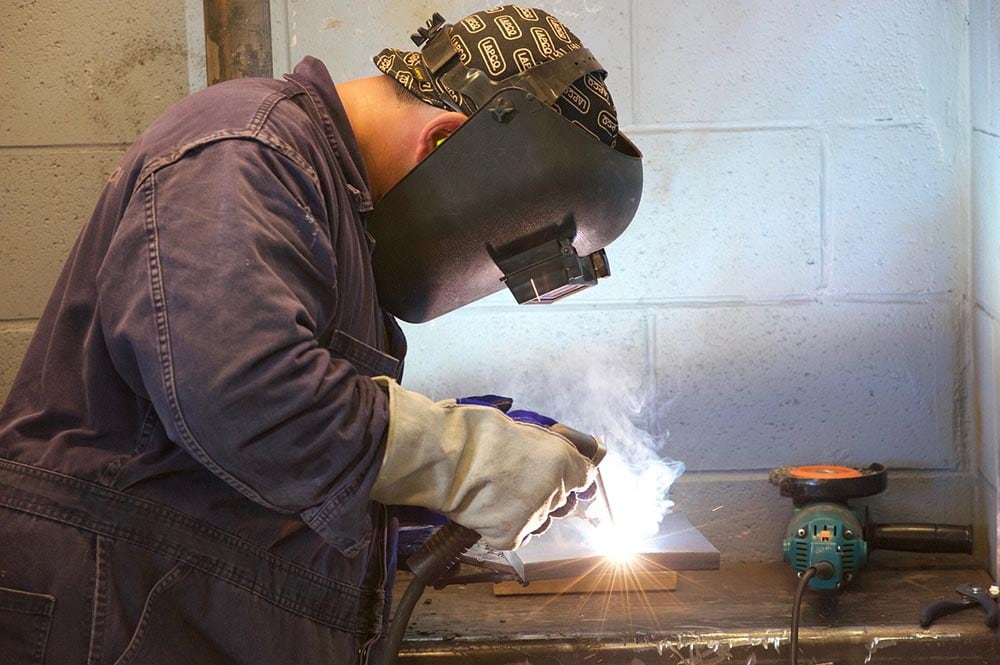
How to Become a Boilermaker
You will need post-secondary training with a focus on welding, general machining, and mechanical work. A high school diploma will also suffice. The usual training requirements include a mix of both classroom and hands-on work.
Most manufacturers or contractors offer their employees on-the-job training. In fact, many boilermakers learn the trade through a 4-5-year apprenticeship. The apprenticeship includes 2,000 hours of paid on-the-job training and at least 144 hours of related technical training.
The classroom training covers basic math, blueprint drafting and reading, metals, and general construction techniques. It will also cover installation techniques and safety standards, and first aid. On the other hand, the hands-on training will cover cutting, welding, operator’s language tools, and equipment.
After completing the apprenticeship, you then become a journeyman and can start working for a contractor. At this level, you have some independence over what you do but are still under an experienced boilermaker.
Final Thoughts
There are plenty of highest-paying opportunities in America, so there is a high chance of finding a job for someone with the skills. However, before you choose this as a career path, consider every aspect. For example, high salaries are good; do you have a passion for manual jobs though?
